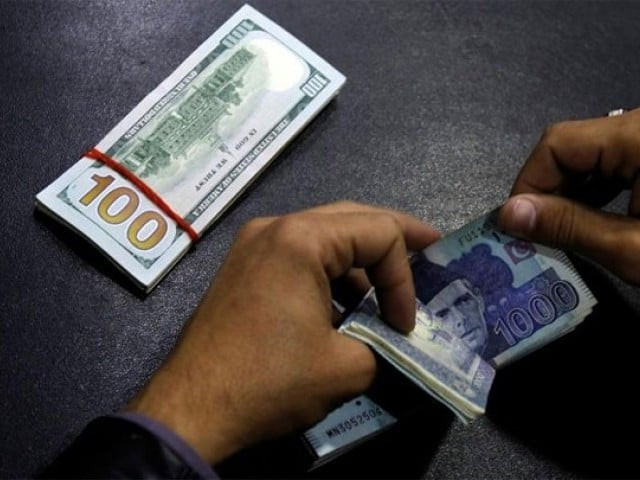Capital inflow and rupee-dollar parity
Exporting firms may face cost pressure due to abrupt currency movements

The rupee-dollar parity is hovering around 153 and it has become the significant news in the social, print and electronic media.
Proponents are of the view that the rupee has appreciated owing to astute policies of the government and investors have reposed confidence in the government and poured money into Pakistan.
On the contrary, the commentators on the electronic media to some extent and social media at large are of the view that certain powerful individuals have repatriated a large chunk of dollars to Pakistan.
They are of the view that certain influential people have earned money from the amnesty scheme given to the construction sector and parked the money outside of Pakistan. Now, they have brought money to Pakistan to whiten their source of wealth and income.
In order to substantiate their argument they state that the value of imports has exceeded the value of exports in the first nine months of FY21. In addition, the growth in imports is outpacing the growth in exports, which cannot appreciate the value of rupee.
However, the double-digit growth in remittances is just enough to convert trade deficit into current account surplus. As far as the case of current account surplus is concerned, the government is of the view that the surplus is heartening to achieve while critics argue that the surplus is achieved at the cost of economic slowdown.
Whenever a government faces balance of payments constraints, it slows down the economy where imports need to be curtailed, which is known as adjustment.
If a lending agency asks for fast adjustment, imports will be curtailed quickly, which in turn start affecting the masses quickly. The economy faced a quick adjustment just before Covid-19.
One can witness the surge in the value of rupee in a short span of time. In a financialised global world, exchange rates are determined by capital inflows and outflows.
Read: Rupee becomes world’s best currency
If investors/speculators lose confidence in a certain economy, they withdraw a huge amount from that country, which in turn drives down the value of currency in that particular country.
On the other hand, the speculators may pour a huge sum of capital into a country in the form of carry trade, which normally drives up the value of recipient currency.
Under the managed float system, if the exchange rate appreciates quickly, then the central bank will intervene to neutralise the effect. In case of a substantial amount of capital inflow, it would become difficult for the central bank to intervene.
The abrupt appreciation of the currency brings economic uncertainty. Business firms are affected a great deal, though exporting firms get hurt the most.
Usually, exporters lock their deals in advance and deliver their orders after some months. A sudden change in the value of currency will dent their profitability. Specifically, small and medium-sized exporters face solvency issues and go bankrupt.
Similarly, imports become cheaper, which helps in pumping up luxury consumption that will further increase the import bill.
Cheap imports create problems for import-substituting industries since they come under cost pressures. Under those cost pressures, these industries will have to restructure and reorganise.
The appreciated rupee would not bring inflation down since prices are sticky in the downward direction as wholesalers and retailers are unwilling to bring their prices down due to menu cost.
In short, the abrupt currency movements may be beneficial for financial capitalists. However, small and medium-sized exporting firms and import substitution industries would face cost pressures and clamour for subsidies in the coming months.
Let us see how the government reacts to the emerging situation in the days to come.
The writer is the Assistant Professor of Economics at SDSB, Lahore University of Management Sciences (LUMS)
Published in The Express Tribune, April 12th, 2021.
Like Business on Facebook, follow @TribuneBiz on Twitter to stay informed and join in the conversation.



















COMMENTS
Comments are moderated and generally will be posted if they are on-topic and not abusive.
For more information, please see our Comments FAQ